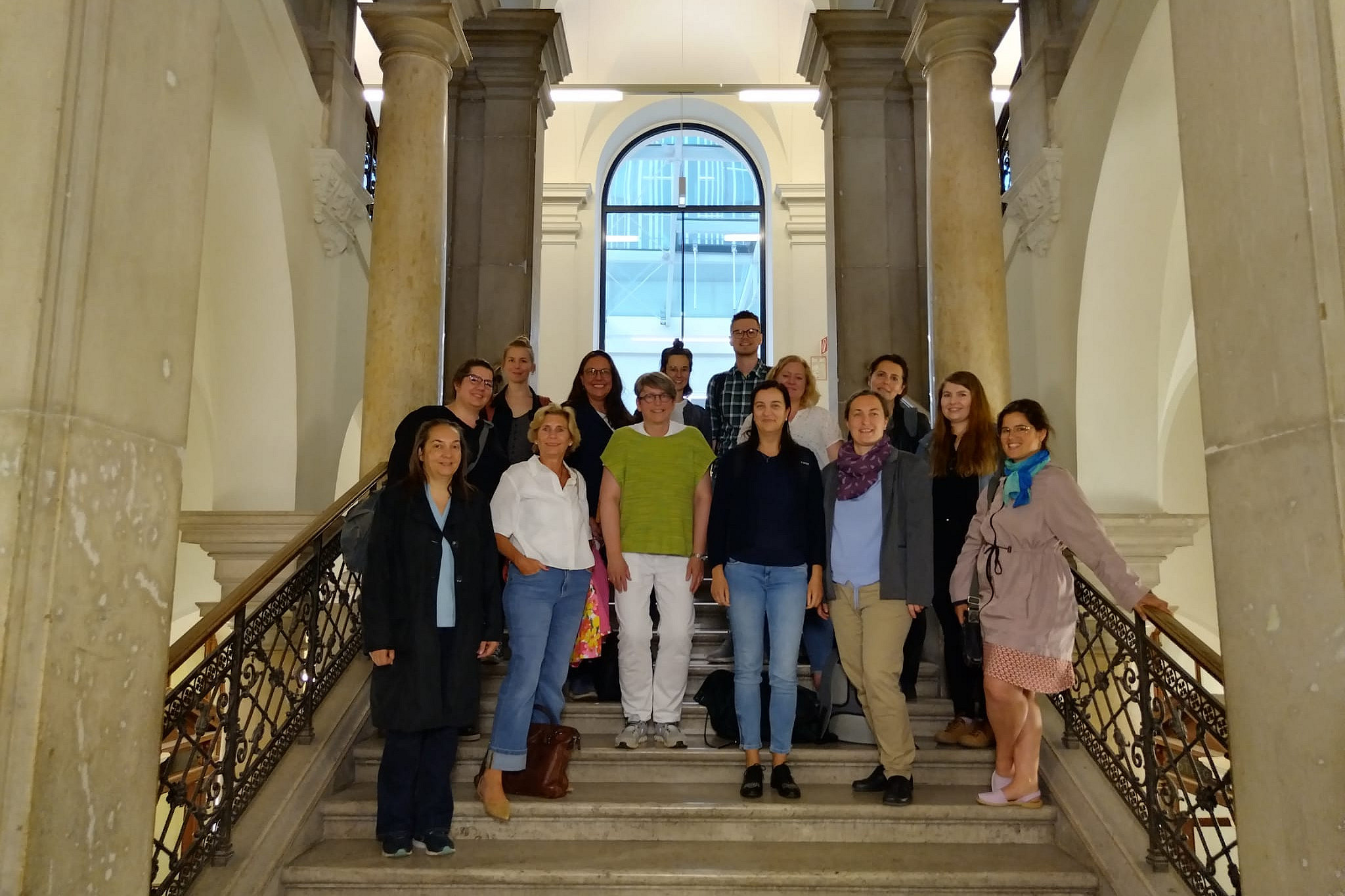Anna Kainradl, Helen Kohlen, Ulla Kriebernegg, and Stefan Schweigler–the team of the Elisabeth List Fellowship Project “Gender Matters: Aging, Care, and Migration”–hosted a very productive, international, two-day workshop on intersectional methodologies, in cooperation with Patrick Schuchter. The Program included six talks from early career researchers, two evening keynotes and several practical workshop sessions on the method of Narrative Inquiry.
In feminist research, it is standard practice to investigate experience-related knowledge in order to represent the lived realities of women. However, it is revealed that such knowledge can only be gathered using an intersectional perspective which allows for making visible diverse attributions of differences and social inequality.
Against this backdrop, this workshop on methodologies of Aging and Care Research aimed at opening up a space for junior researchers (Pre-Doc and Post-Doc) getting to know each other to have in-depth discussions on their research.
The first day of the workshop focused on the research projects of the speakers Stefanie Rieger (University of Graz), Florence Borggrefe (Zurich University of the Arts), Anna Nebowsky (University of Oldenburg), Mara Kaiser (University of Vallendar), Dzenana Pupic and Brigitte Kukovetz (Univeristy of Graz), and Merle Weßel (University of Oldenburg). Their research is situated in the fields of Age(ing), Care, and Migration Studies and was presented from a methodological viewpoint.
In the evening of day one, the keynotes by Prof. Mark Schweda (University of Oldenburg) and Prof. Vera Caine (University of Alberta, Canada) were open to public audiences.
Day two was dedicated to Narrative Inquiry as a practical research method, which was presented by Vera Caine, Mara Kaiser and Ramona Hummel. Especially when considering the possibility of cultural and language barriers–both of which are hard to overcome for researchers socialized in Western Europe–, the methodological diversity and participatory modality of Narrative Inquiry provided opportunities for creative exchange and transfer of knowledge(s).
The two-day workshop was an academic event of the Elisabeth List Fellowship Project “Gender Matters: Aging, Care, and Migration.” Elisabeth List was very active in raising awareness on the importance of taking a closer look at the political, cultural and existential concerns of women to effectively change practices. With this in mind, the team dedicated this workshop to research methods that follow Elisabeth List’s principles and standards.
